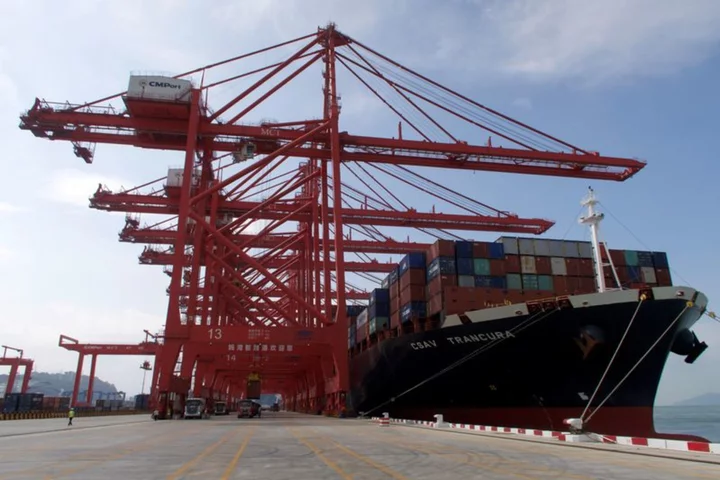BEIJING China's exports and imports shrank at a slower pace for a second month in September, customs data showed on Friday, adding to the recent signs of a gradual stabilisation in the world's second-biggest economy thanks to a raft of policy support measures.
The trade report should provide some encouragement to authorities, although stiff challenges remain in an economy facing persistent deflationary pressure, a long-running property crisis, a slowdown in global growth and geopolitical tensions.
Outbound shipments in September declined 6.2% from a year ago, following a drop of 8.8% in August, and beating economists' forecast for a 7.6% fall in a Reuters poll.
The figures were backed up by new export orders in an official factory survey two weeks ago which showed improvement last month, partly because of a peak export shipping season for Christmas products and favourable base effects.
Global trade activities, represented by the Baltic Dry Index, also reported notable growth in September.
However, Lv Daliang, spokesperson of the General Administration of Customs, said at a press conference earlier on Friday that China's trade still faces a complex and severe external environment
Thanks to gradual recovery in domestic demand, imports also fell at a slower pace, down 6.2%. They missed the 6.0% decline forecast in the poll, but came in better than a 7.3% contraction in August.
That resulted in a broader trade surplus of $77.71 billion in September, compared with a $70 billion surplus expected in the poll and $68.36 billion in August.
Overall, economists say it's too early to make a call on how domestic demand will pan out in coming months as the crisis-hit property sector, uncertainties in employment and household income growth as well as weak confidence among some private firms pose risks to a durable economic rebound.
A weak yuan is another headache for policymakers as it restricts the amount of monetary stimulus China could deliver.
Moreover, Beijing is having to navigate challenging relations with the United States amid rising tensions between the two economic superpowers over trade, technology and geopolitics.
Yet, authorities can take some comfort from recent data including upbeat factory activity and retail sales while the past Golden Week holiday travel edged up 4.1% from pre-pandemic 2019 levels.
In order to help the economy meet the government's annual growth target of around 5%, China is considering issuing at least 1 trillion yuan ($137.00 billion) of additional sovereign debt to fund infrastructure projects, as Beijing prepares to bring a new round of stimulus, Bloomberg News reported on Tuesday, citing people familiar with the matter.
The $18 trillion economy started losing steam from the second quarter after a brief post-COVID bounce, prompting policymakers to roll out several measures to shore up the recovery in the face of a sluggish housing market, high youth unemployment and mounting local debt repayment pressure.
($1 = 7.2995 Chinese yuan renminbi)
(Reporting by Ellen Zhang, Joe Cash and Liangping Gao; Editing by Shri Navaratnam)









